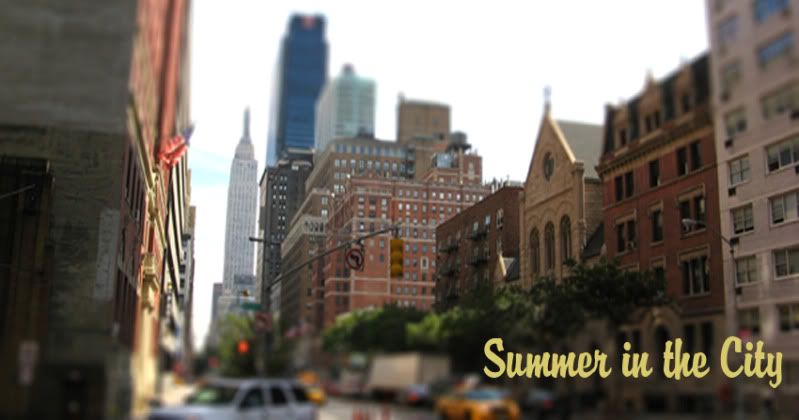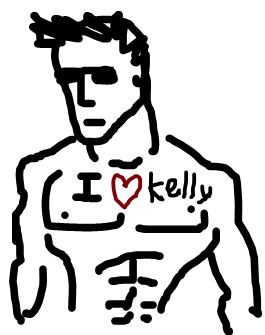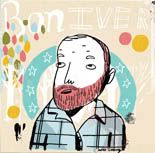three concerts and a life-changing string of thoughts
 Last week was crazy busy filled with three concerts and some family drama. Last Thursday, some friends and I went to the free Josh Ritter/Andrew Bird concert at the Gallivan Center downtown. I really liked Josh Ritter. And as expected, Andrew Bird was a little out there, but also good.
Last week was crazy busy filled with three concerts and some family drama. Last Thursday, some friends and I went to the free Josh Ritter/Andrew Bird concert at the Gallivan Center downtown. I really liked Josh Ritter. And as expected, Andrew Bird was a little out there, but also good.I love the city at twilight in the summertime. It makes me want to ride my beach cruiser bike down the sidewalk in a sundress.
 They had the most amazing strawberry lemonade at a Thai food booth. City concerts are very sweaty and smelly, but fun all the same.
They had the most amazing strawberry lemonade at a Thai food booth. City concerts are very sweaty and smelly, but fun all the same.The next concert adventure was Doomtree and Flobots at the Avalon. If I had known how gross the Avalon was, I never would have gone there, let alone taken my two nephews with me. Alas, because of the family drama (you don't want to know), we never got to see the Flobots. And Doomtree wasn't exactly worth it.
Next up we have the annual Steel Days Big Show with J. Marc Bailey, Eclipse and The Return (a Beatles impersonation band - complete with Southern tinged Britlander accents). They were good - they had the authentic instruments, wigs and skinny pants to prove they meant business. Even their individual voices sounded like the Beatle they were impersonating. It was lovely. But I am concerted out for now - or maybe until G. Love comes to SLC again. I loff heem.
So that brings me to the life-changing string of thoughts. I have noticed as I get older that adults tend to ASSUME an awful lot. It's staggering how much of what we believe about situations or people is really just speculation. Dictionary.com defines Assume as "to take for granted or without proof; suppose; postulate." Why do we assume we know the whole story about someone or something when, in reality, such a thing is impossible? Yet how do you not assume? Where there are gaps in our known concrete knowledge of a thing, our brains tend to fill in with all kinds of crap. And it is, almost always, complete crap. I have noticed that a lot of the gap-filling is done by inserting our own past experience - if we've encountered something similar, we use that to fill in the gap. But it is usually completely wrong.
We all do it. I do it. I'm ashamed to admit this, but I went on a family trip a few weeks ago, and a young friend of the family I haven't seen since he was a pre-teen came along. Immediately I assumed he was a punk. He was wearing a bandanna around his forehead like a ganster and I didn't even realize I'd already filled the gap with what I know about gangsters until I discovered that I was completely wrong. It wasn't 5 minutes into the trip before I realized what I had done - he looked like a hoodlum, but he was the nicest, most well-mannered kid on the trip. He is bright, polite and funny but I assumed he was going to be obnoxious. I did it almost subconsciously. Another example is one of the most infuriating that I encounter: politics. Most people assume, somehow, that they know what kind of person political figure X is all about. But who really knows except the people who work with and around them on a daily basis? I'll give everyone a little tip - the media CANNOT BE TRUSTED to be 100 percent truthful or objective. It doesn't matter what media source you listen to - they all make stuff up, usually with with whatever comes in handy at the time. I worked for a news station for a few months and I was shocked at the blatant spin they put on even the most trivial stories. And every writer had their own reasons for doing it. I think of this every time I hear people say they want to vote for this candidate or that candidate or that they KNOW that the president is a (insert expletive of choice here). But step back for just one second and ask yourself - how do you KNOW that? What is your source of information? Is it a reputable, scholarly source (fyi: scholarly does not equal most news or radio programs)? Did you get your information first, second or thirteenth-hand? I'm just saying - it's possible that most of our opinions aren't actually based on anything but huge gaps of misinformation. I'm not saying that everything we have an opinion about should be based on absolute fact (care to stick the scientific method on that, anyone?), but it sure would add to one's credibility if one is claiming to be credible.
Thesaurus.com: "assume"
conjectural, counterfeit, fictious, feigned, hypothesized, hypothetical, inferred, postulated, simulated, speculative, supposed, theoretical.
conjectural, counterfeit, fictious, feigned, hypothesized, hypothetical, inferred, postulated, simulated, speculative, supposed, theoretical.





